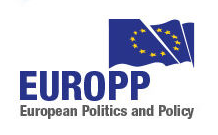United Kingdom
The United Kingdom has not emerged unscathed from the Brexit. Nevertheless, it continues to seek influence on the international stage, as illustrated by the "Global Britain" theme or the signing of the AUKUS agreement.

After UK: Who's next curbing social benefits?
Vivien Pertusot appears in a news report by Euranet Plus looking at the section on social benefits from the deal found between the United Kingdom and the European Union.


France and Britain seeking eurozone agreement ahead of EU 'Brexit' summit
Vivien Pertusot analyses the difficulties between the United Kingdom and France over the draft deal on the "Brexit" negotiations ahead of the European Council.


How the migrant crisis has brought Germany to a 'historical turning point'
As Germany agrees a plan with Turkey to ease the refugee crisis, political analyst Barbara Kunz says both migration and integration are the major issues for ordinary Germans, with the country at a "decisive turning point in its history". She spoke with RFI's Sarah Elzas.


Great-Britain Whistle-Stop Tour of the EU
The consultations on Cameron’s demands were run with the EU members by the head of the European Council, Donald Tusk from Poland. Tusk wrote down what was said and sent a letter to London and other European capitals. The letter was quite peculiar, admits Vivient Pertusot, the head of the French Institute of International Relations (IFRI) in Brussels.


The French are looking for a fair deal for France and the EU, not just Britain
France has been ambivalent on the British renegotiation campaign. The general mood is to keep the UK in, but messages are going in different directions. Some are shrugging off the UK’s calls for reform and are not trying very hard to accommodate Westminster. Others seem keener to find an acceptable deal for Britain.
Between Inertia and Openness. Germany Reforms Its Labor Immigration System
With its new Skilled Immigration Act (Fachkräfteeinwanderungsgesetz) of 23 June 2023, Germany aims to become the country with "the most modern immigration law in Europe". A new points system and new entry rules for experienced workers having a degree from their home country demonstrate the willingness of the German government to open up its labor market to third-country nationals. While immigration law was already the subject of a previous reform in 2020, the new law is a real paradigm shift in Germany’s migration policy.
Charles III's United Kingdom and Africa. A Temptation to Withdraw
On May 6, 2023, King Charles III will be crowned at Westminster Abbey in London. This briefing assesses the UK-Africa relations against the backdrop of the new King's discourse on Global Britain.

Climate: Which Way Forward?
Thirty years after Rio, the case file “Climate: Which way forward?” assesses current climate commitments, which are undoubtedly less impressive and less certain than the political pronouncements and media fanfare make them seem. A number of fundamental problems remain.
Germany’s Africa Politics: Renewal of an Unequal Cooperation?
In recent years, Germany’s Africa politics have been characterized by proactive international initiatives and the claim for a "partnership at eye level". However, a look at the power constellations of its cooperation indicates that inequalities are – contrary to Germany’s own claims – rather reproduced than reduced.
RAMSES 2022. Beyond Covid
For its 40th edition, RAMSES 2022. Beyond Covid, written by Ifri's research team and external experts, offers an in-depth and up-to-date analysis of geopolitics in today’s world.

European Task Force on Irregular Migrations - Country Report: United Kingdom
Irregularity of status, or „illegal‟ migration, has become a significant issue of public interest over the last 10 years. It is argued that the numbers game and moral panic shifted from black communities in the early 1980s to „bogus‟ asylum seekers in the early 1990s, and to irregular migrants in the late 1990s (Clandestino 2008: 18). We argue that public concern over irregular migration results from the tension between the needs of the UK economy for labour migration and the attempts of successive governments to convince voters that they are in control of immigration, and that they only allow inflows beneficial to the country. This situation generates loud and tough discourses on asylum and irregular migration, which remain closely related issues in Britain today.

European Task Force on Irregular Migrations - Country Report: Germany
From a European comparative perspective, Germany represents the case of a highly restrictive migration control regime. Between 400,000 and 600,000 migrants live in the country without legal resident status. Their access to social rights such as health care and education is severely restricted, and individual or collective regularization channels do not exist.

European Task Force on Irregular Migrations - Country Report: Italy
In order to understand the present configuration of immigration policies in Italy, it is necessary to follow a path of double logic at every step of the analysis. On one side, the study will identify consistent trends in the country’s “immigration history” that continue to shape the main features of the reality of immigration today (see §§ 2.1 and 2.2). On the other side, the study will focus on major changes in the regulation of immigration and the policies addressing undocumented migrants that occurred in more recent times (see § 2.3.).
Support independent French research
Ifri, a foundation recognized as being of public utility, relies largely on private donors – companies and individuals – to guarantee its sustainability and intellectual independence. Through their funding, donors help maintain the Institute's position among the world's leading think tanks. By benefiting from an internationally recognized network and expertise, donors refine their understanding of geopolitical risk and its consequences on global politics and the economy. In 2024, Ifri will support more than 70 French and foreign companies and organizations.
















